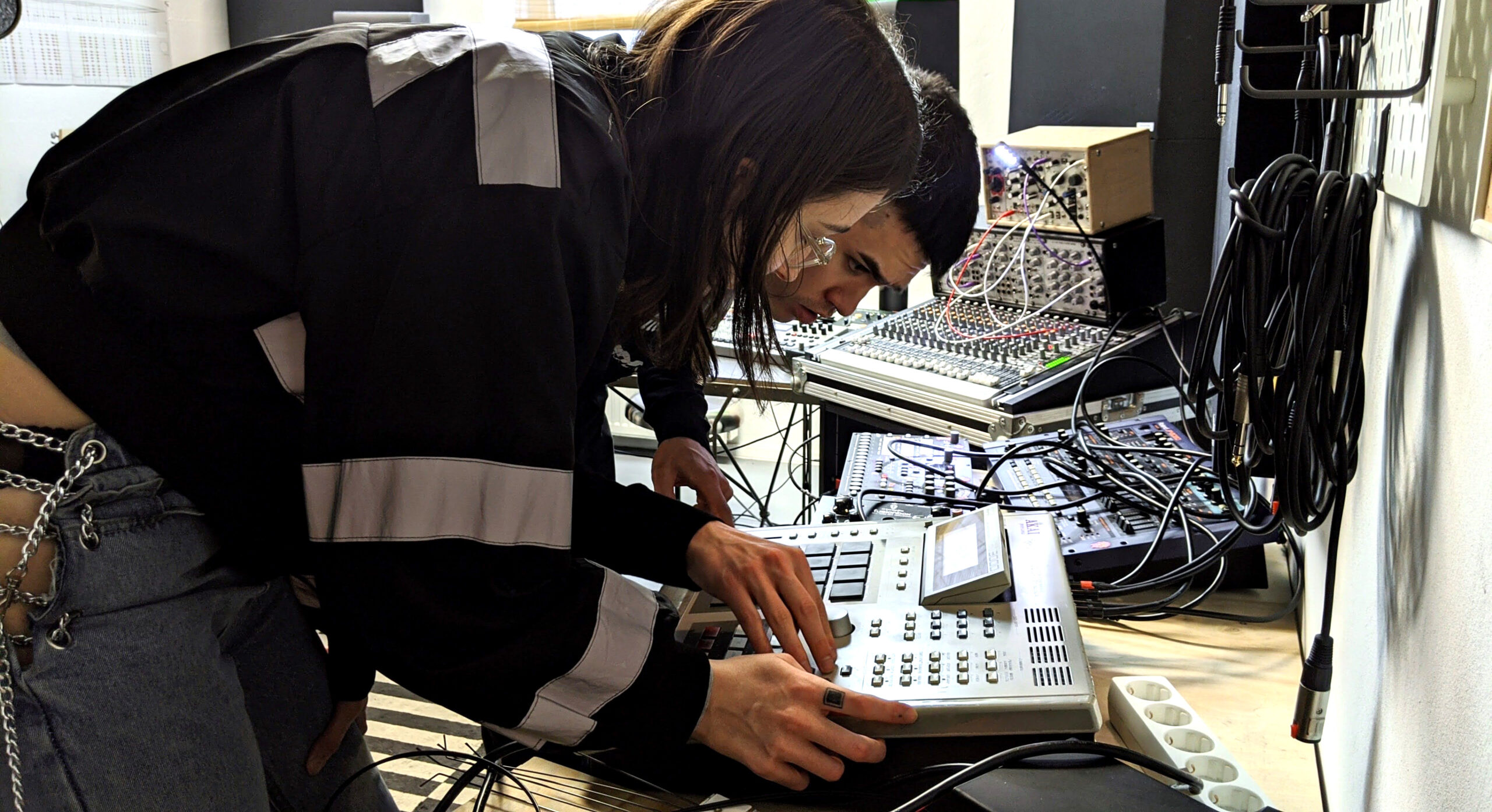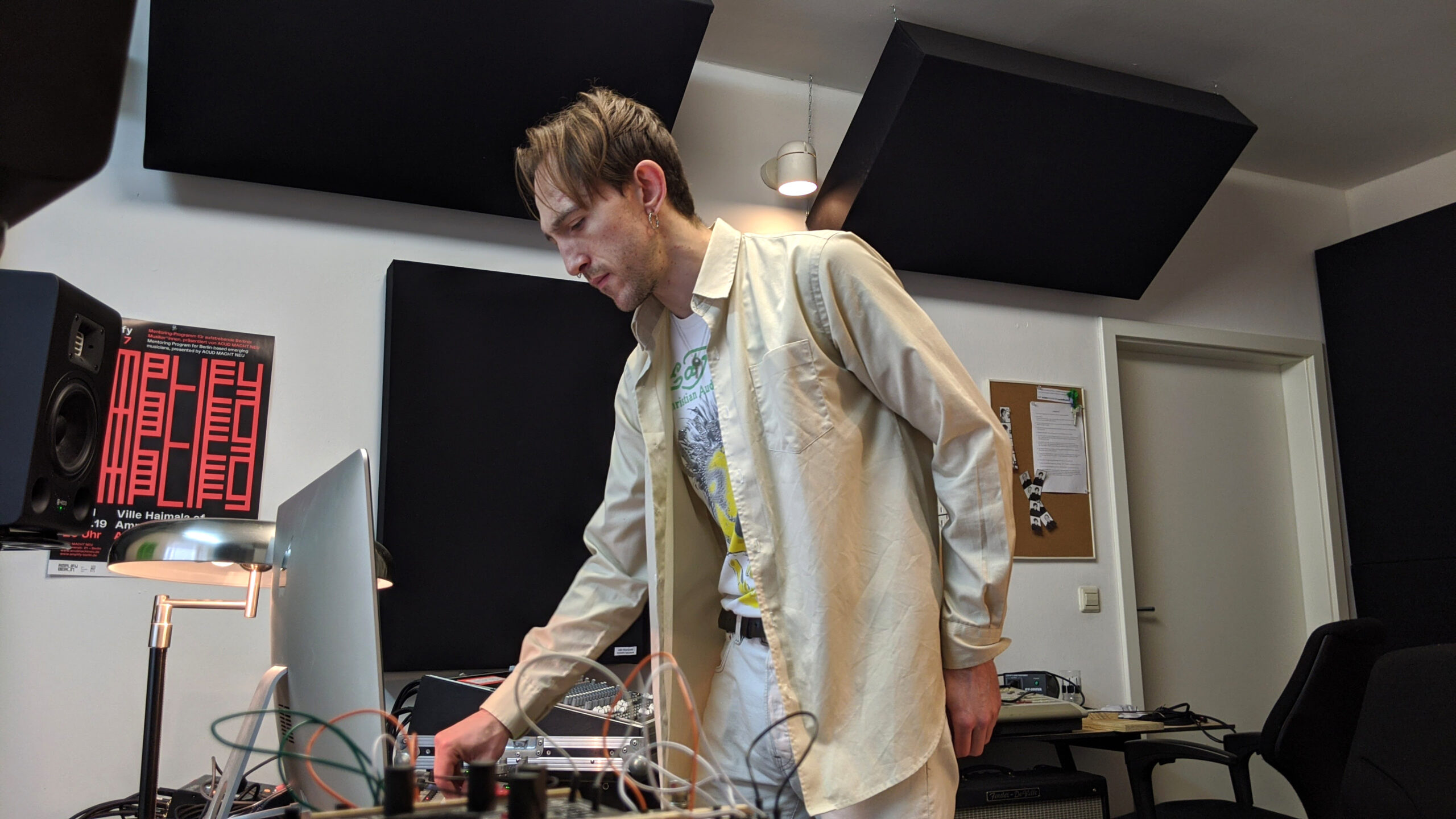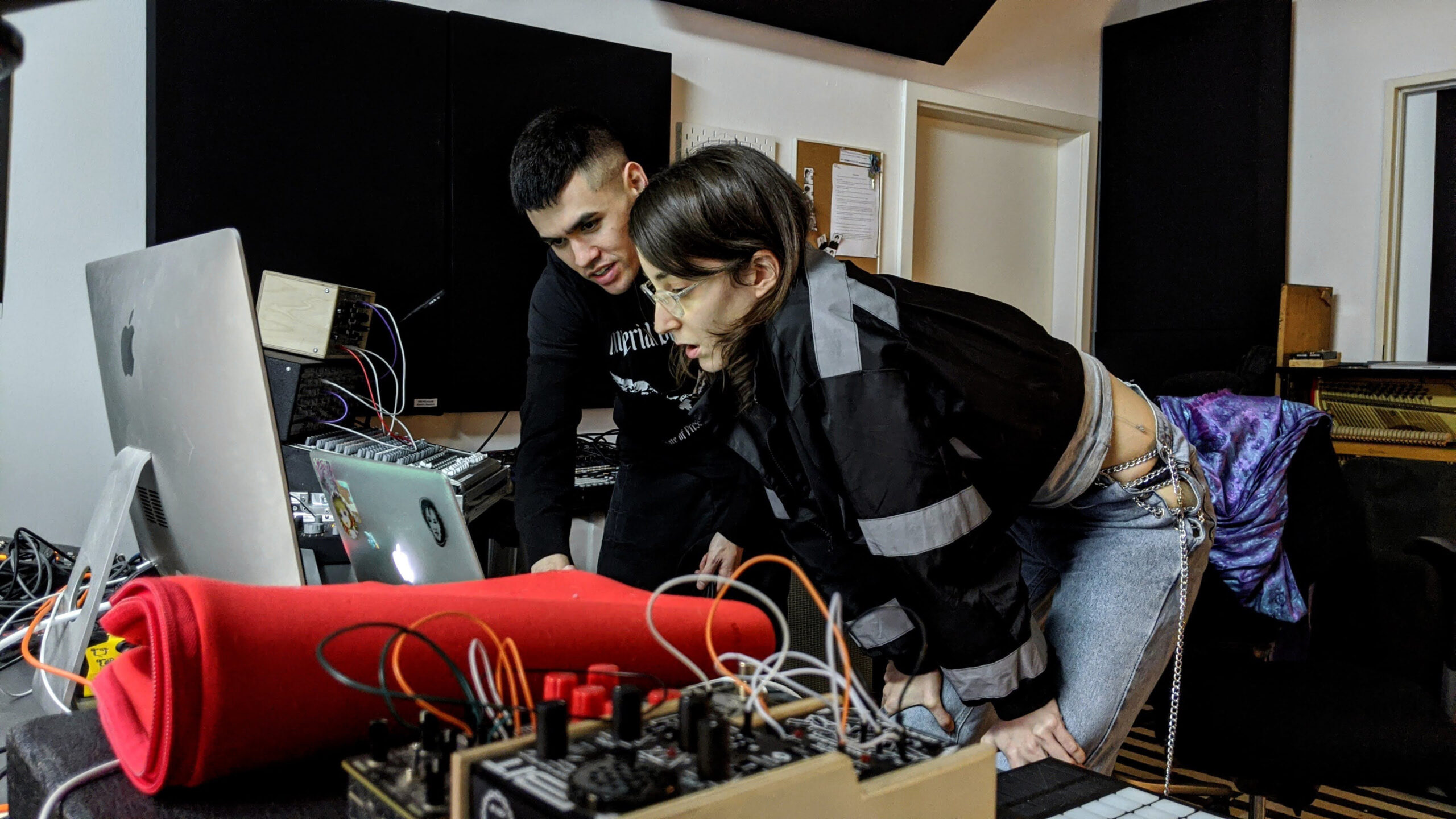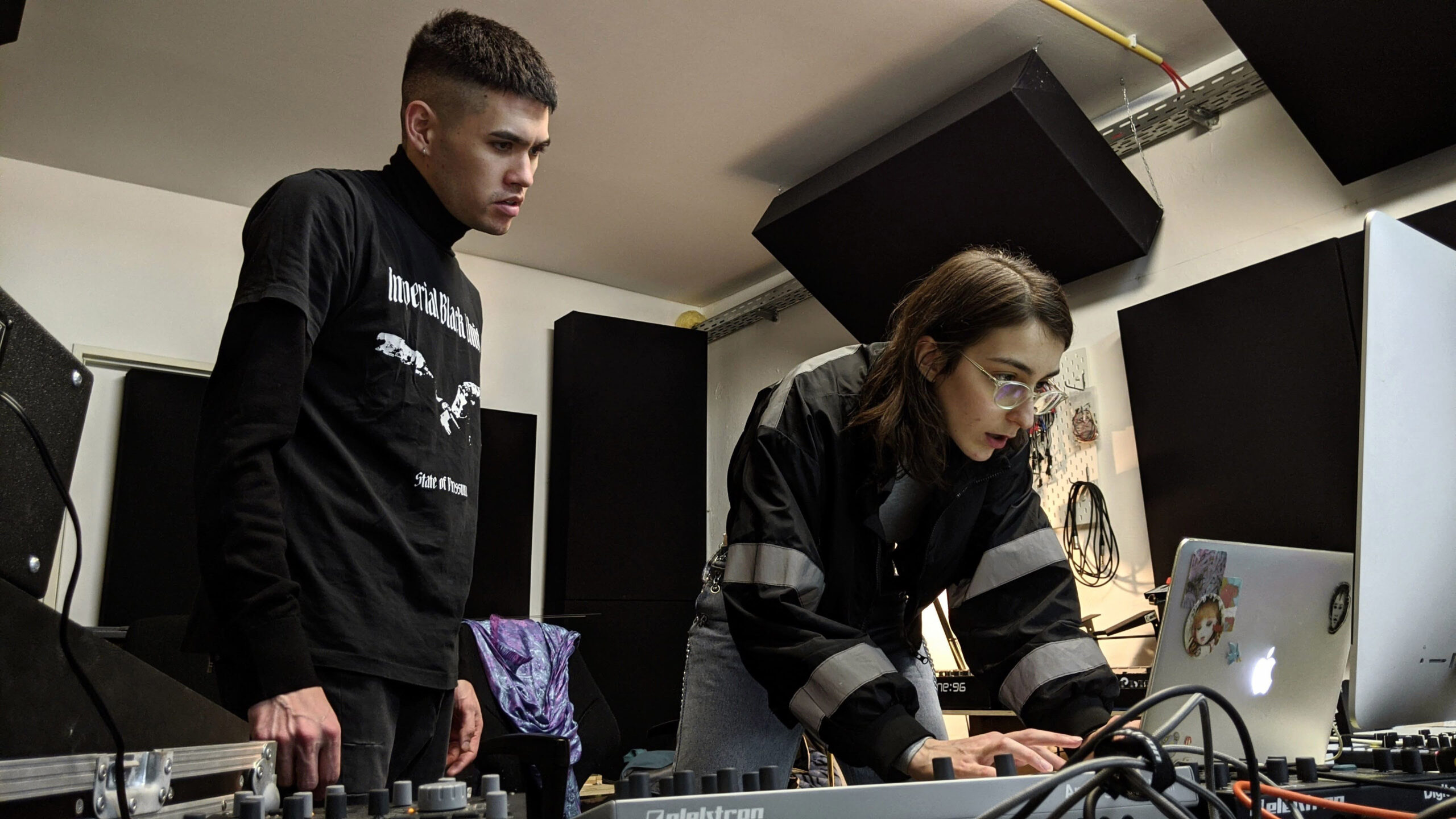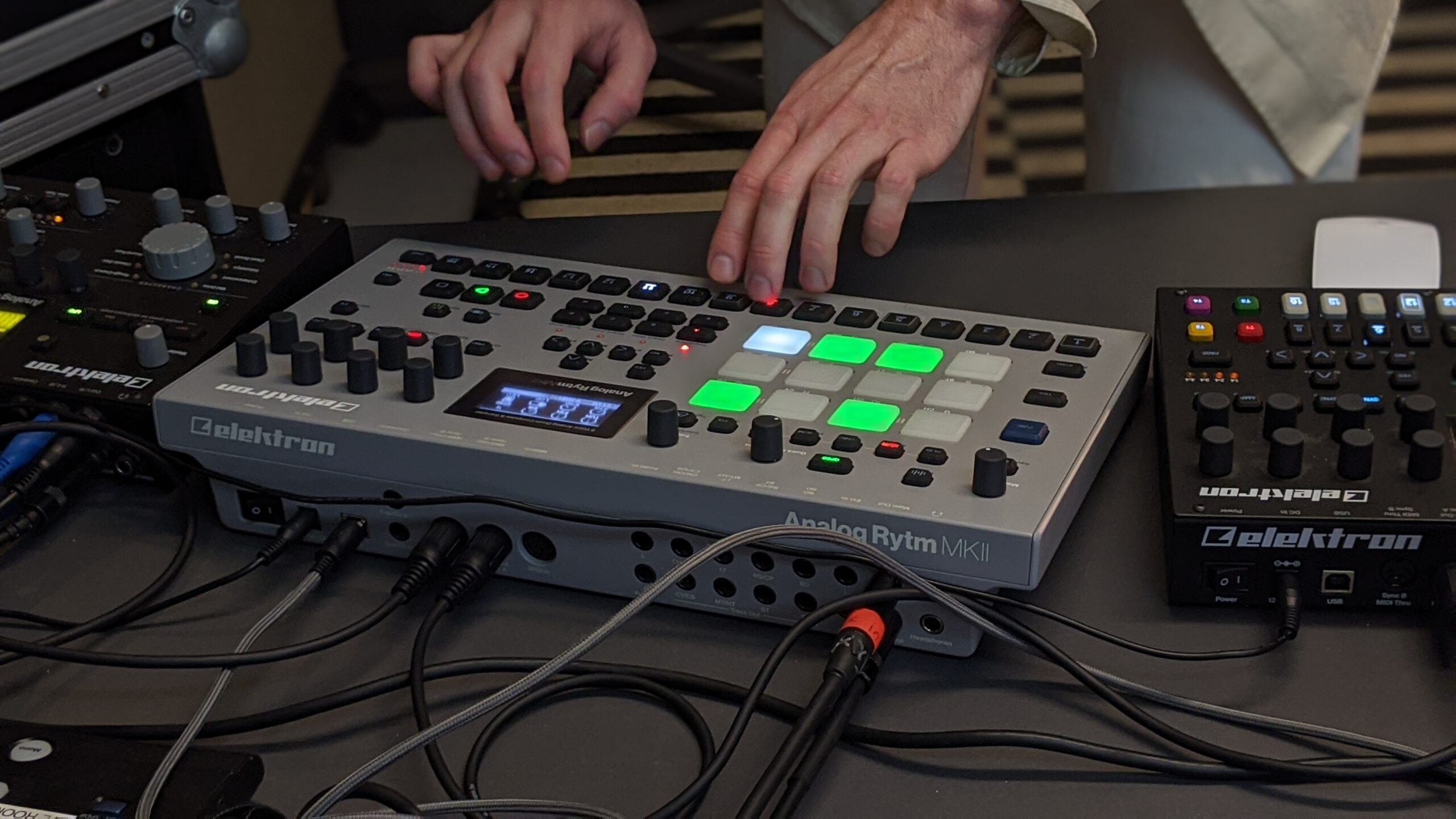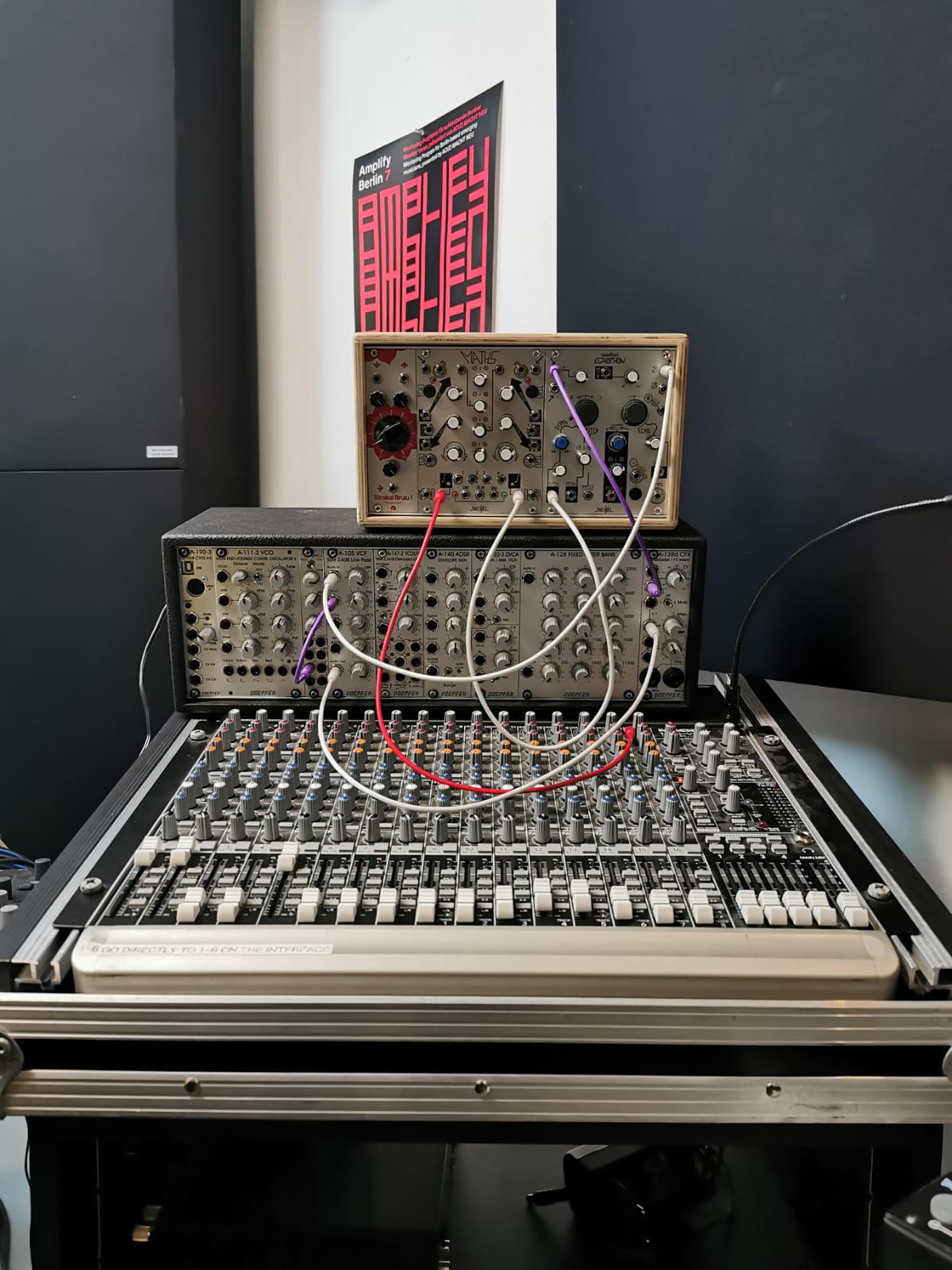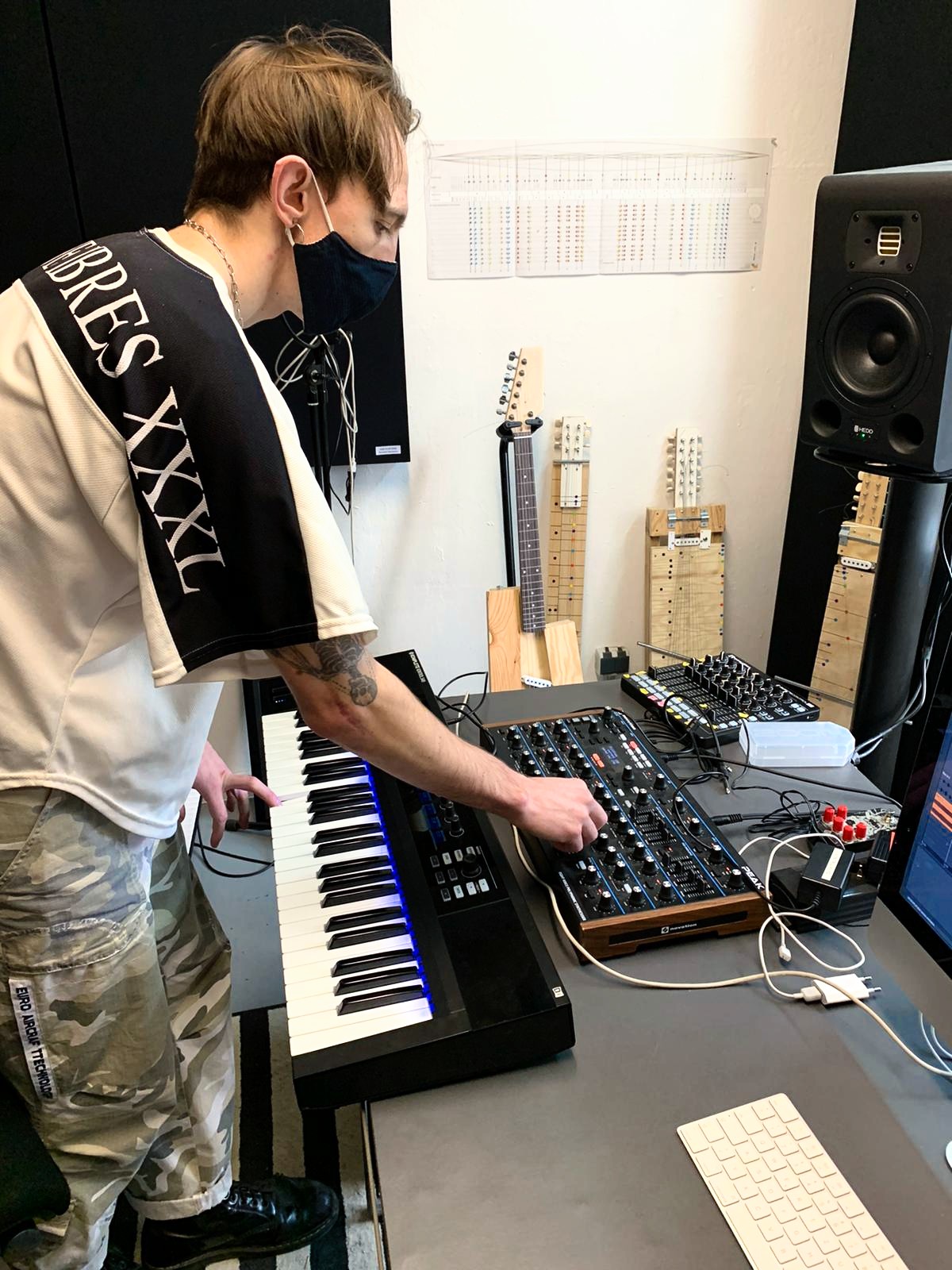Berlin
23
Phase Fatale
robogeisha
Christ Initials
Interview
robogeisha and Christ Initials
robogeisha
The first, quintessential, perfectly adorable robot of the 90ʼs. Intelligent, scratchy, capable of cleaning the house. Except that it couldnʼt talk or had a brain the size of a nail, but oh so cute. Decade after decade, robots have improved, bent and jumped about on stage, digging out the coal and scrubbing the glass from windowsills. But in general, robots today just havenʼt got it right.
Christ Initials
Producer, Songwriter & DJ Joel Cotterell (in Berlin, from so-called Australia) is making techno and performance soundscapes. The project is driven by the tensions between grimness and play, between alienating industry and the sociality of the dancefloor, and between strict rhythm and indulgent melody. Affinities for the miasma of black metal and Sisters of Mercy–style drama are inflected with criticality, camp and class consciousness with the goal of helping bodies to move and passions to flare.
CI: I saw you describe your work as Islamic Body Music. What does IBM mean for you? What should good IBM do?
r: I made that track (3kin hijab pro 2.0) in which I read from the Quran and arrange phrases like chopped up vocals in EBM and decided to call it IBM. Also, the other day I shared a video of the world’s biggest Quran on Instagram and a friend from İstanbul (teria_charmingbac) said he learned how to read the Quran properly with Tajwid rules when he was a child. So I asked him to read from page 69. He is getting featured in my track for the residency. IBM is growing I guess, yayyy. I consider myself an innovator of the genre but this idea came to me after seeing some Muslims were offended when Coucou Chloe played her track Doom in Rihanna’s lingerie show which includes samples of an Islamic hadith. She is still receiving death threats from dumb Muslims, but what bothers me the most is these middle-class academics and journalists in the Western world who are siding with offended Muslims and accusing her of cultural appropriation to be politically correct. The only reasonable explanation for this can be that they are jealous of Chloe’s sampling genius and intuitive art senses which are so next level she devised to play this track while a drag queen is walking, without even knowing the meaning. This is my understanding of good subversive art and to cultural appropriation police, who don’t come to her defense, I say YALLAH GO TO SAUDI ARABIA. (and give me your permanent residence permit so I can stay here forever instead of you.)
CI: Has this residency pushed you in any new/unexpected creative directions? OR Is there anything that you will cut from your production process following this residency?
r: I found out that Satie is my cocaine and thanks to our mentor, Hayden, my setup with JP8080, Mpc3000, and Rytm is super neat now. I got more into DJing and fast-paced jungle stuff, still experimenting with odd time signatures. We didn’t talk too much about extramusical topics, but I feel braver in my thoughts. I feel like artists right now are so afraid to be canceled there is no place to explore ethically ambiguous topics anymore. Isn’t this supposed to be the artist’s job? It would be very annoying if our mentor was one of those fake leftist PC police but luckily he is a very democratic lover of art who supports my right to offend even when I have some questionable aesthetic decisions. I have no interest in becoming a superstar DJ/producer who is afraid to speak what is on their mind because I’ll receive backlash. I just want to be able to make playful art that is also meaningful and I don’t care if I die tomorrow…but I won’t go without a fight.
CI: Thanks to COVID we’re postponing our live performances, so we can let our imaginations run free for a moment. I’m curious about the ultimate robogeisha gig. If you had no restrictions (of budget, technology, etc.), what would you do?
r: This question got me excited! I need to think about this more in detail but these 3 characters are a necessity:
– sex robot in kawaii school girl dress and Nike hijab reciting Islamic hadiths
– minimum of 2 muscular bodybuilder bellydancers — they need to dance with women’s belly dance moves and their clothes will be from fetish harness, chains, and latex
– chubby hairy Turkish daddy with white Nike JUST DO IT tank, cleaning shisha then smoking it
At some point, chubby hairy Turkish daddy will sexually harass the kawaii sex robot in hijab. To protect the robot’s virtue is at the hands of the audience. Nike, I’m calling out to you. You tried to make a sneaky product placement through my Instagram feed once. Thank Allah I was smart enough to say no to you trying to take advantage of my platform as if I’m a breeding cow…but this is your chance now. Sponsor my live set and I’ll place your products in all appropriate holes.
r: Do you feel people from your everyday life and your childhood have any influence on your music? Do you need external events in your life to push you to make music? Because I think I’m like that. I need a trigger to make a track I really like.
CI: First, I would say that I do try to make music that exists in response to the world. It’s meant to be hard-edged to push through the alienation, aerobic to awaken the body, and sometimes a bit tacky because play is essential in keeping imagination alive. While I am extremely down for utopian thinking I’m quite turned off by the idea that making music (or anything) should be any kind of self-contained oasis, isolated from the wider world. Life inflects my music and I’m glad for it.
With that said, I don’t think I like to make music in direct response to a particular event or person (have tried, wasn’t great). The more referentially explicit I am, the more unlistenable the result is. There might be a lovely beat or bassline, but no one wants to hear my voice, run through a delay pedal, reeling off slogans or romantic lamentations or whatever. Others can do it, but it doesn’t fit me. I remember your mate Zizek once used the term ‚disgusting proximity‘ (in a different context) and that’s how it feels for me to make music like that. It sounds and feels better when I respond to states and tensions.
r: To gain visibility today independent musicians need to follow growth strategies set by business models of major companies. (working with PR agencies, investing in sponsored content, etc.). In this environment do you think its possible for music to provide a platform for change?
CI: There are so many ‘it depends’ responses to this question that it’s taken me a few attempts to write anything here. My first reaction was to think of artists and collectives that have built up fairly solid reputations and fanbases, and have mobilised recently to raise money for communities and people in need. Contributing to bail funds, social spaces, medical expenses, people who are broke because of COVID, etc. That’s real ‘change’ that was made possible by the platforms that these people have thanks to music. For me, the bitter twist is that this mutual aid has such a palliative character. Without downplaying its importance, I’m struck that it’s so often about reactive harm minimisation.
If there’s an obstacle to music serving as a platform for big change, I don’t think it’s the imperative musicians have to work with PR agencies, do sponsored content, etc. if they want to build recognition. I see plenty of musicians with big names and PR practices advocating positions that would have been considered extraordinarily radical as recently as last year. I’d say the obstacle rather lies in the way that platform capitalism so powerfully swallows anger and solidarity, turning these into questions of taste and group affiliation without the raucous camaraderie and action that subcultures (RIP) and, for instance, trade unions once offered.
r: What is your relationship with conflict in your personal life? Do you get inspired by conflict like me? Do you try to avoid it? How do you manage to resolve it?
CI: Part of me wishes that I were inspired by conflict (and good at it), but to be honest I’m too phlegmatic and laid-back. I don’t know if it’s cultural or astrological or what. Of course I understand the benefits of healthy conflict, but it doesn’t often feel good or inspiring to me. Resolution comes through discussion, compromise (I’m aiming for less), and patience.
If we can abstract away from myself, I think conflict can be just fab and a big source of inspiration. It’s an energiser that helps us shake off the obsolete and reinvigorates our appreciation of what is good. Loud, clashing noises; conviction, action, bravery; thesis, antithesis, synthesis. No domination.
